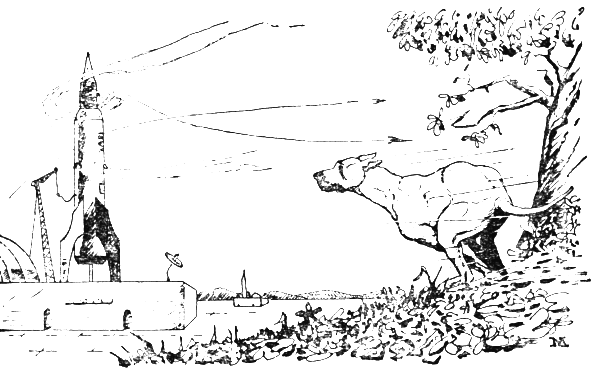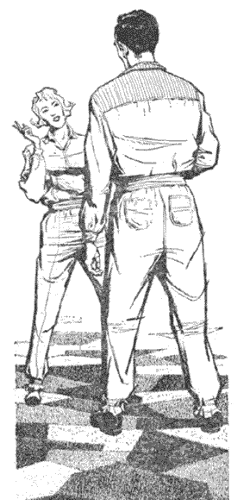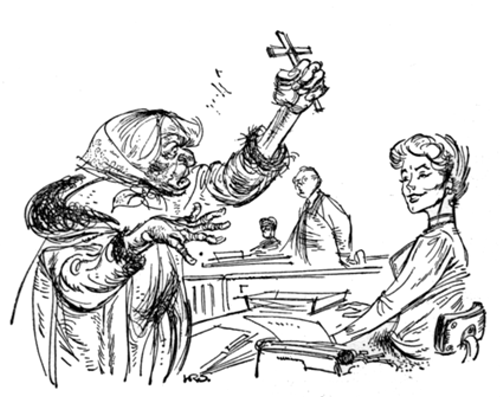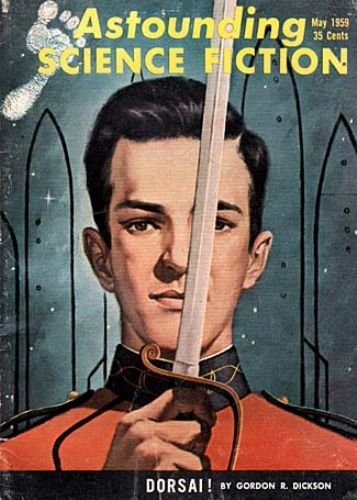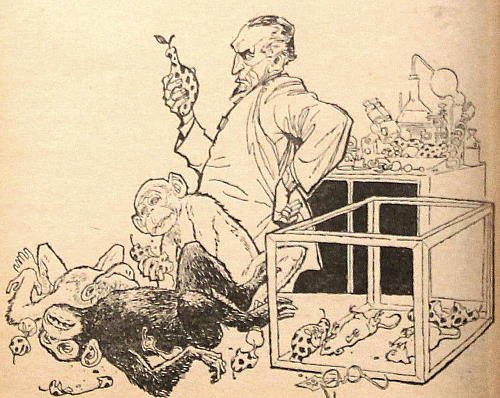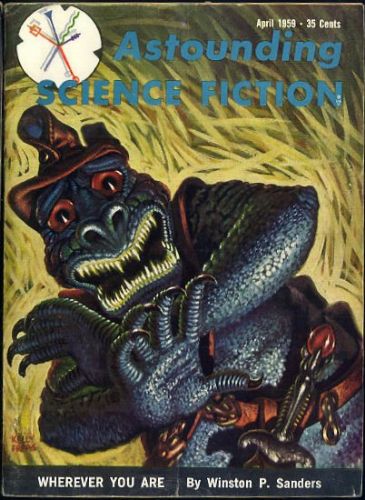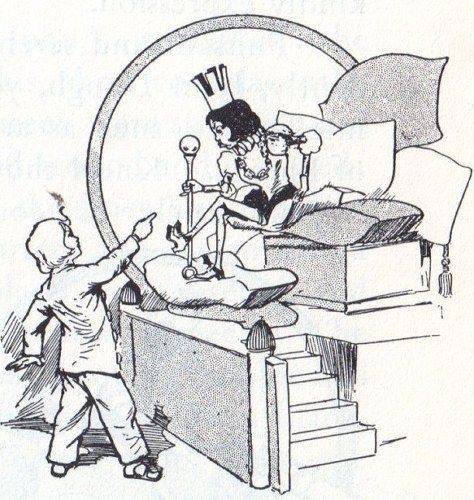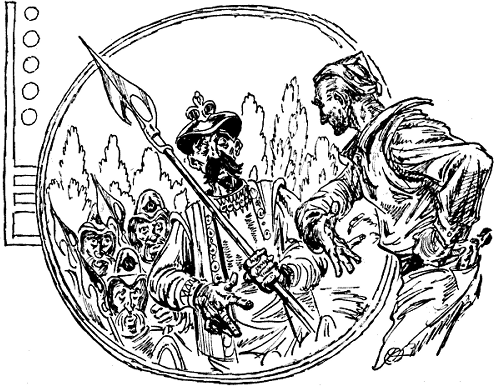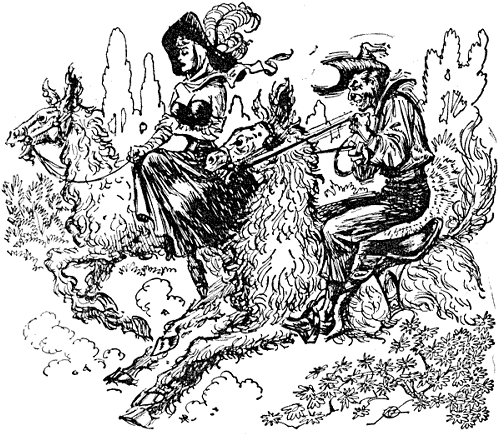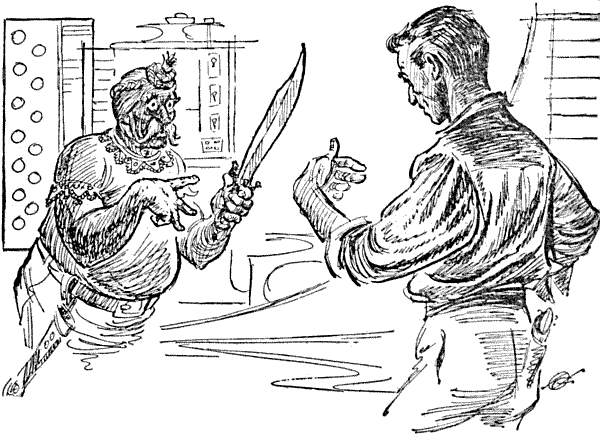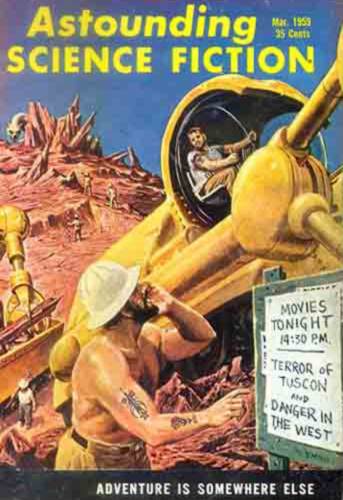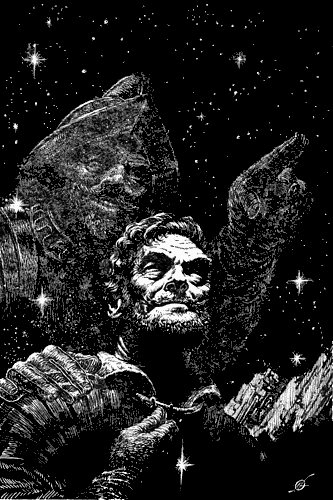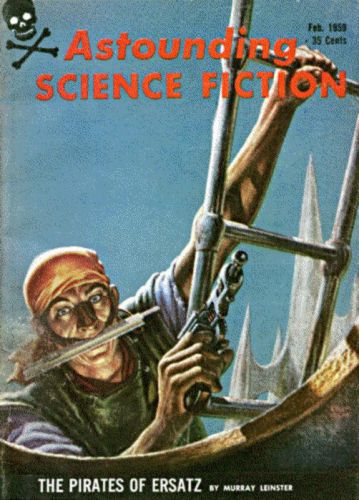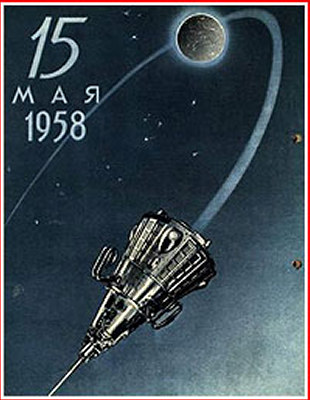One of the main reasons I read science fiction is to see something truly new. I don't just want to see a view of the future–I want to see a brand new culture, or a completely alien creature, or an innovative take on psionics. Only science fiction (and fantasy) really can do this, and even then, writers are often locked into clichés informed by the current world they live in.
The June 1959 issue of Astounding is pretty good. More significantly, it has got a lot of neat ideas that I had not seen before. Let's take a look, shall we?
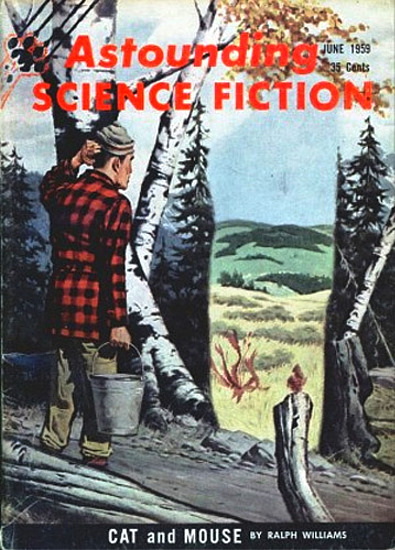
by Van Dongen
The opening story is Cat and Mouse, by Ralph Williams. Williams has been writing since the late 30s, and his craft is finely honed with this excellent tale of an grizzled Alaskan outdoorsman, his cat, and the alien pest he is (unwittingly) recruited to eradicate.
Many factors make this story so good: Ed Brown, aged 60, is well developed. Williams captures the stiffened limbs but heightened wisdom of an older protagonist. The portrayal of both the Alaskan and off-planet wildernesses is vivid, as one might expect, Williams being a resident of Homer, Alaska. But it's the alien race, the Harn, that is the stand-out element. The not-quite-sentient creature is actually a symbiotic tribe of species, or perhaps the same species with differing pre-natal modifications to produce a variety of offspring classes: to wit, there is a central, immobile "brain," stinging units designed to bring down prey, carrier units that are mostly leg and sack designed to bring food to the brain mass, and fighting units whose role is to defeat larger adversaries.
Brown is just barely up to the task of vanquishing the alien menace, and it is a nail-biting battle of cunning to the end. Sadly, this story may turn out to be Williams' swan song. It is my understanding that the fellow passed away very recently on a fishing trip in the 49th state. I will have to seek out more offspring of his pen; if they are all of this quality, the world has lost a treasure.
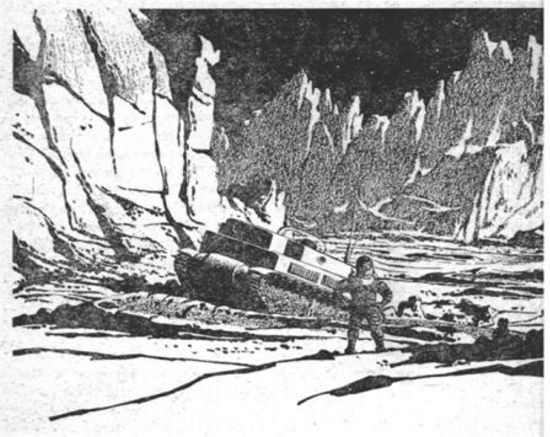
by Van Dongen
I enjoyed All Day September by Roger Kuykendall. It's an almost slice-of-life (and I love slice-of-life) account of several weeks on the Moon after a meteor shower savages a moon base and leaves a prospector stranded out in the airless lunar desert. The prospector's salvation, and indeed that of the lunar population as a whole, is his discovery of frozen water in caves hidden from the sun. This is an exciting concept that I've never seen in science fiction or science. The general assumption is that the moon is bone-dry, but it is certainly plausible that there could be stores of water, either primordial or from ice comet impact. The only strain to my credulity came when it was learned that the prospector carried no radio because local transmitters had too short a range (acceptable–there is no ionosphere on the moon to bounce AM waves), but transmitters that used Earth relays were too bulky. It would seem to me that, if we establish a population on the moon, we'd precede it with satellites in orbit that could be used for communication.
Transfusion, by Chad Oliver, is a strange story. The premise is that a galaxy-spanning race of humans found itself bested by a savage, implacable foe, and its only hope was to seed a small colony of brain-wiped people on an out-of-the-way planet (Earth) and hope that this new society might come up with a completely innovative way to fight humanity's enemy. As a test, the starfaring humans salt the planet with fossils of Homo Sapiens, Neanderthals, Australopithecines, etc.–basically every member of our evolutionary tree, along with colonies of great apes. The idea is that once we discover that we've been hoaxed, we are ready to do battle with the aliens.
It's a silly idea, but reasonably well executed. Humanity invents time travel in the early 1980s, goes back in time to do some physical anthropology, and catches the starfaring aliens in the act. Traveling back to the present, the story's protagonist determines that his old anthropology professor is, in fact, an emissary of the old humans (the last). The professor tells his student the whole story and gives him the keys to his spaceship with its advanced technology. I would guess that between the ability to time travel and fly faster than light, humans will be well-nigh unstoppable.
Perhaps we'll become the implacable scourge.

by Freas
Finally, we have the silly Unborn Tomorrow, by Mack Reynolds. A private eye is sent to Oktoberfest to find time traveling tourists. Not only does he find them, but they keep slipping the detective mickeys and sending him back in a time loop to ensure that their cover is never blown. All the dick has to show for his efforts is a massive hangover and memories of three trips to Bavaria. He wisely refuses a fourth time around. The slightest of the bunch, but still decent.
Of course, there are virtually no female characters to be seen. On the other hand, as I've said before, if you can't do it right, it's best not to try. Despite the absence of the half of the human race from this issue, it's still a good book–let's call it 3.5 stars.
My bi-monthly Galaxy came in. Expect that to be the topic day-after-tomorrow. Thanks for reading!
(Confused? Click here for an explanation as to what's really going on)
This entry was originally posted at Dreamwidth, where it has comments. Please comment here or there.


